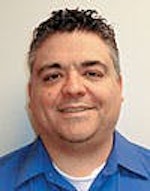Practicality describes how Rusty's got it start. When the 30-year industry veteran Okimoto decided it was time to leave a family business and strike out on his own, he opted for a site that combined both attractive cost potentials and history. Okimoto invested a mere $110,000 to get his business off the ground. He did so at a Norwalk location that had served for nearly a half century as home to a number of shops.
He then applied a similar formula, mixing frugality and opportunity, to garner the kind of customer base most shops seek — lifelong customers who can be counted on for regular service stops. That's no easy task, especially for a new business. Okimoto benefited from his work at his previous shop. When the clientele discovered he was moving out on his own, many followed him.As for garnering new clientele, Okimoto prefers to be patient and let his business sell itself through cost-effective measures, such as word of mouth. Okimoto, in fact, invests no money in advertising and calls into question the popular practice of customer shopping — using mass-media campaigns to draw in hosts of new customers for what he says are too often one-time visits. "It's expensive, and it just isn't profitable," Okimoto says.
Offer good service at a reasonable price and not only will customers find you, they'll be back again and again, according to Okimoto. When that happens, the sight of a consistently full lot — another piece of free advertising — draws in even more.Okimoto also leverages another cost-effective resource, one that many shops either overlook or write off: colleagues in the automotive service industry. Okimoto is a firm believer in not operating "as an island." As such, he has formed tight bonds with local body repair, transmission, air conditioning, glass repair and tire shops. This setup works because these businesses trust each others' services and therefore feel confident in sending customers to one another. They even share repair information.
"It's not uncommon for us to talk to another shop about a specific technical issue," says Okimoto, "If we have a question about a radiator problem, we'll call up a radiator shop."
While these efforts might seem to shortchange the shops involved (why help another shop when you can do the work yourself?), Okimoto confidently says everyone benefits in the long run. Perhaps the chief benefit: They get to draw from the same pool of loyal customers looking for shops they can trust.
Okimoto says these customers fill his shop each morning. The trust shared by business and customers makes life easier for everyone. Okimoto says many of his customers arrive at his shop, request a repair or service and toss him their keys. No haggling over prices. No doubts over the necessity or quality of the service.
This customer pool has helped transform Rusty's from a modest 10-bay facility to a powerhouse. Three months after opening his doors, Okimoto says he had more work requests than he could handle. For his second year in business, he's on track to book $1.4 million in work – a better than tenfold return on his annual investment. The average $135,000 Okimoto generates each month puts his shop in the top 2 percent of independent shops nationwide.
Okimoto does offer one caveat to his story. He operates in Califfornia, where there "is more than enough business to go around." Still, that doesn't guarantee success for every shop. There's a lesson here regardless. Running a shop doesn't start with financing, business outlook studies or the latest and greatest equipment. It all begins with the values you've learned and hold.


